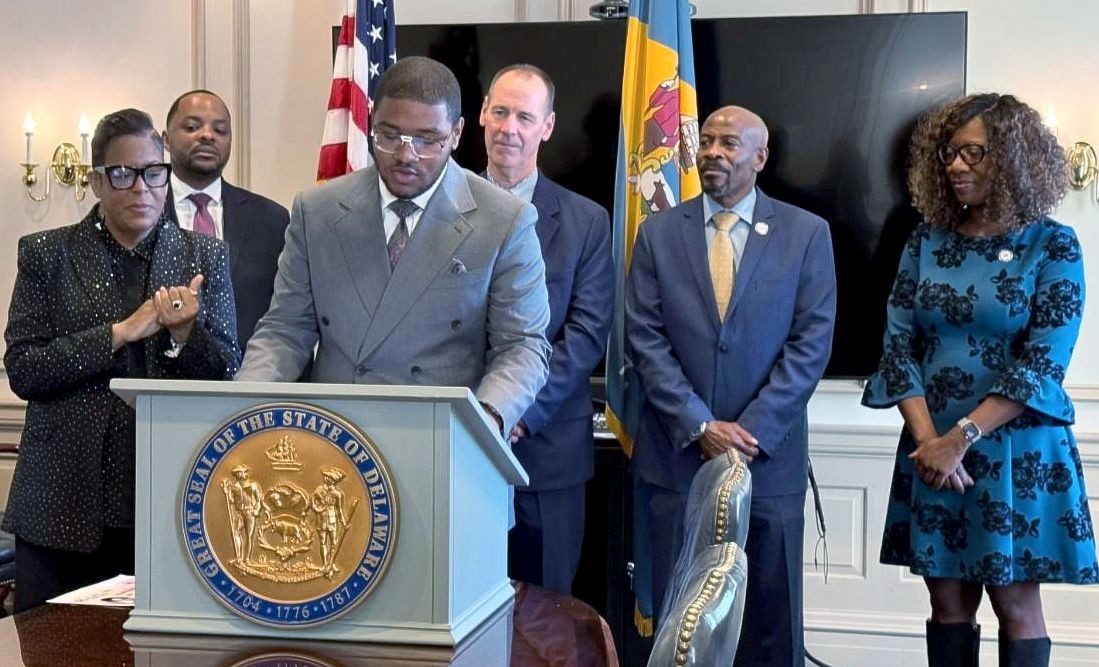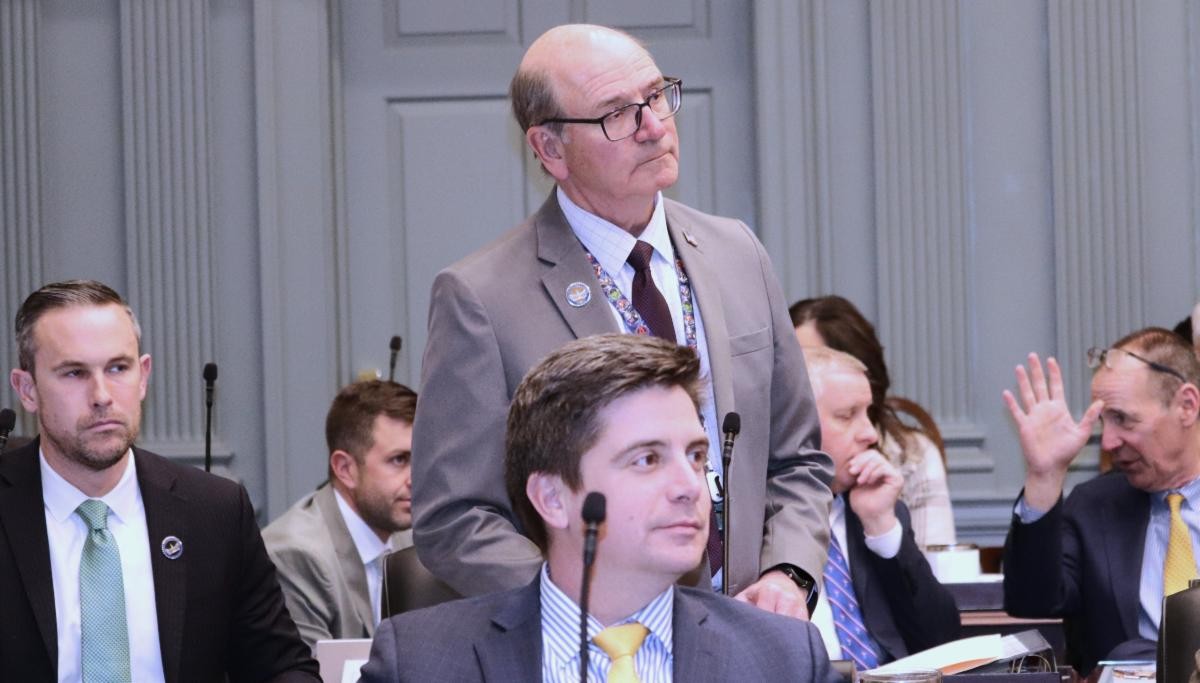For Immediate Release: July 25, 2025
For More Information: Joseph Fulgham, 302-744-4184
House and Senate Republicans are proposing action and urging the General Assembly’s leadership to consider returning to Dover to moderate the fallout from the property value reassessment process.
The genesis of the current issues began in early 2021, when Delaware’s three county governments agreed to reassess all residential and commercial properties in their jurisdictions. The actions settled a lawsuit against the counties, in which the plaintiffs — Delawareans for Educational Opportunity and the Delaware NAACP — had alleged that an outdated model for valuing property shortchanged Delaware students and public schools.
State law requires that property tax assessments be based on the actual value of the property. The counties are charged with adjusting valuations, but nothing in the Code established how often this expensive and controversial process had to be done, making county officials reluctant to move ahead on their own initiative. Before the lawsuit settlement, decades had passed since property values in any of the counties had last been assessed. Sussex County conducted its previous assessment in 1974, while New Castle County and Kent County last completed theirs in 1983 and 1987, respectively.
Under state law, reassessment is supposed to be conducted in a relatively revenue-neutral manner, with tax rates reset in tandem with the new valuations so that the same approximate total revenue is generated after the process. However, on an individual taxpayer basis, the process is not homogeneous. Depending on multiple factors, some property owners may experience a tax cut, while others remain status quo or face significant increases.
One aspect of the law allows school districts to realize a total revenue gain of up to 10% following reassessment (Title 14, Chapter 19, § 1916). That’s especially significant because, while county governments collect property taxes, they retain a relatively small percentage for their own use. The lion’s share of the proceeds flows to the school districts.
Citing a previously undetected accounting error that placed the district in financial jeopardy, the Appoquinimink School Board surprised residents and lawmakers earlier this month by approving a plan to adjust tax rates to take advantage of the 10% total revenue bump allowed by law.
Had Delaware lawmakers enacted a bill twice proposed by State Rep. Mike Smith (R-Pike Creek Valley), that option would not have been available.
Introduced as House Bill 389 during the 151st General Assembly (2022) and again as House Bill 42 in the 152nd General Assembly (2023), the measure would have required that school districts collect the same total revenue after reassessment.
“The intent of reassessment is to level the playing field and restore equity in property values and the taxes paid by property owners,” said Rep. Smith, discussing his bill two years ago. “I have young children and I support getting schools all the funding required to do everything they need to do,” Rep. Smith said. “At the same time, we have a system in this state that requires the schools to get citizen approval to raise taxes. The current reassessment law allows a significant tax hike to be imposed on Delawareans, subverting the referendum process.”
Both incarnations of the bill failed to gain enough support among House Democrats to advance to the chamber floor for consideration.
The latest version of Rep. Smith’s proposal, which has been drafted but not yet filed, includes two additional caveats.
“I added a provision that allows districts to increase revenue after a reassessment, but limited solely to situations where they would be facing a projected deficit and only to the extent needed to balance the budget,” he said. “Any potential increase would be capped at 10%. This addition will provide some protection for schools, but they’d have to justify the increase with hard, verifiable data. It’s not a Get Out of Jail Free card.”
The second new aspect of the bill makes it retroactive to July 1, 2025, which would set aside the controversial July 8th decision by the Appoquinimink School District to initiate a 10% tax revenue increase.
“To be clear, this would not usurp Appoquinimink’s authority,” Rep. Smith said. “The board would still be able to increase revenue under this bill, but only to the degree that it keeps the budget out of the red, and they would need to provide specifics backing up their claims,” Rep. Smith said.
Another bill that might help reduce the uncertainties created by reassessment is House Bill 109, which has been held in the House Elections & Government Affairs Committee without a hearing since early April, in violation of House Rules.
Two years ago, the legislature passed a measure that was signed into law, requiring reassessments to be conducted at least once every five years. The prime sponsor of House Bill 109, State Rep. Kevin Hensley (R-Townsend, Odessa, Port Penn), says that while the new law is well-intentioned, it was an overcorrection. His proposal would require reassessment to occur every 10 years.
“Having no deadline on reassessment didn’t work well, but setting it to take place every five years basically means we’ll be in constant reassessment mode,” Rep. Hensley said. “Moderating to 10-year intervals will save millions of taxpayer dollars, reduce stress on citizens, and still provide timely valuations. Just as importantly, if the legislation to eliminate the option the schools have to boost their total revenue every reassessment is not enacted, my bill will halve the opportunity for surprises from twice a decade to once.”
State House Republican Leader Tim Dukes (R-Laurel), State House Republican Whip Jeff Spiegelman (R-Townsend, Smyrna, Clayton), State Seante Republican Leader Gerald Hocker (R-Ocean View), and State Senate Republican Whip Brian Pettyjohn (R-Georgetown) added that they think the Speaker of the House and the president Pro Tem of the Senate should consider bringing legislators back into session to deal with the fallout from the reassessment process.
“Property reassessment was always going to be a complicated process, but the way it’s been handled has left many Delawareans blindsided by sharp tax increases,” Sen. Hocker said. “This is a statewide issue, but it’s being amplified by the concerns we’re hearing from residents in New Castle County facing particularly large increases. If leadership reconvened the legislature, we could start working immediately on common-sense measures that protect both taxpayers and schools, while restoring public confidence in the process.”
“There are a lot of people struggling to make ends meet that are now getting hit with large, unexpected tax increases as a result of this process,” said Rep. Dukes. “This is especially true in New Castle County, which last reassessed during the Reagan administration. If we set a hard date to return to Dover, it would provide the sense of urgency this situation deserves and give us a firm target to speed discussions. We are willing to work with our colleagues across the aisle to explore options that might help curtail these impacts and reduce the pain reassessment is causing.”
















